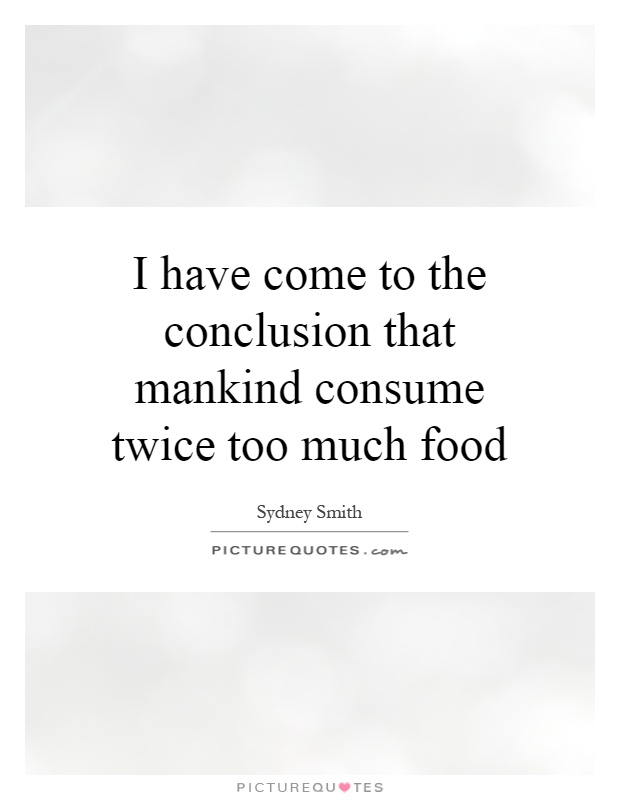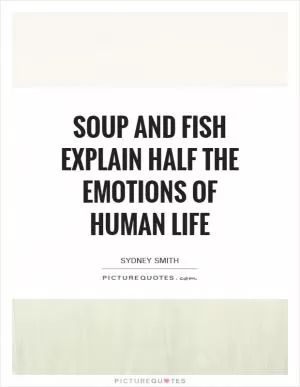I have come to the conclusion that mankind consume twice too much food

I have come to the conclusion that mankind consume twice too much food
Sydney Smith, a renowned English writer and clergyman, once famously said, "I have come to the conclusion that mankind consume twice too much food." This statement, made in the early 19th century, still holds relevance today as we continue to grapple with issues of overconsumption and food waste.Smith's observation speaks to the larger issue of excess in modern society. With the rise of industrialization and globalization, food production has become more efficient and accessible than ever before. However, this abundance has led to a culture of overindulgence and wastefulness. In developed countries like the United States and Australia, where food is plentiful and affordable, it is not uncommon for people to consume more than they need, leading to health problems such as obesity and diabetes.
Furthermore, the environmental impact of our excessive food consumption cannot be ignored. The production of food requires vast amounts of resources, including water, land, and energy. When we consume more than we need, we are putting a strain on these resources and contributing to environmental degradation. In addition, food waste is a major issue, with millions of tons of perfectly edible food being thrown away each year. This not only squanders valuable resources but also contributes to greenhouse gas emissions and climate change.
Smith's statement also raises questions about the ethics of overconsumption in a world where millions of people go hungry every day. While some have more than enough to eat, others struggle to find adequate nourishment. This disparity highlights the need for a more equitable distribution of resources and a shift towards sustainable and responsible consumption practices.












 Friendship Quotes
Friendship Quotes Love Quotes
Love Quotes Life Quotes
Life Quotes Funny Quotes
Funny Quotes Motivational Quotes
Motivational Quotes Inspirational Quotes
Inspirational Quotes